by cjxpadmin | May 30, 2013 | June 2013 Magazine, Uncategorized
By ALISON GREEN
March 6, 2013 RSS Feed Print
While you can never predict with certainty exactly what questions you’ll be asked in a job interview, some questions get asked so frequently that you’d be foolish not to prepare answers for them in advance. Here are five of the questions that you’ll most likely be asked.
(And even if these don’t come up, you’ll be better prepared by having rehearsed your answers to them, because you can easily weave them into the conversation to engage and impress your interviewer.)
What interests you about this job? It sounds obvious, but a surprising number of candidates don’t have a thoughtful answer prepared for this. Interviewers want to hire people who have carefully thought through whether this is a job they want and have concluded that yes, they’d be excited to do the work. If you flounder when asked about your interest and can’t explain why you’re enthused at the prospect of this particular work, you’re likely to get struck from the hiring manager’s list.
Why do you think you would do well at this job? The best answers to this question point to past experiences and skills that position you to excel at the work. You want to know your answer to this question backward and forward before walking into your interview … because if you can’t make a compelling case for why you’d be fantastic in the role you’re applying for, it’s unlikely that the interviewer is going to take the time to piece one together on her own.
What has been one of your biggest achievements? Savvy interviewers ask this question because they want to hear what you can achieve when you’re at the top of your game—and whether you’ve had many achievements at all. And moreover, even if your interviewer doesn’t ask this particular question, preparing an answer is still helpful, because you may work it into your responses to other questions. Being able to talk fluently about your achievements is a key way to show that you’re someone who produces outstanding results, rather than someone who simply does the bare minimum.
Tell me about a time when __________. Fill in the blank with situations relevant to the position. For instance: Tell me about a time when you had to take initiative … you had to deal with a difficult customer … you had to respond to a crisis … you had to give difficult feedback to an employee … You get the idea.
These types of questions—known as behavioral interview questions—probe into what you’ve done in the past, not what you say you’d do in the future. It’s key to prepare in advance for these questions, so that you’re not struggling to come up with examples off the cuff. That means that ahead of your interview, you should brainstorm about what skills you’re likely to need in the job and what challenges you’re likely to face. Then, think about what examples from your past you can point to as evidence that you can meet those needs. Talk yourself through how you’d present them in answer to these questions, making sure that you cover what challenge you faced, how you responded, and the outcome you achieved.
What salary are you looking for? If you don’t prepare for this question, you risk low-balling yourself or saying something that will harm you in salary negotiations later. Don’t let this question catch you off-guard; prepare for it ahead of time so that your answer works to your advantage. △
Alison Green writes the popular Ask a Manager blog, where she dispenses advice on career, job search, and management issues. She’s also the co-author of Managing to Change the World: The Nonprofit Manager’s Guide to Getting Results, and former chief of staff of a successful nonprofit organization, where she oversaw day-to-day staff management, hiring, firing, and employee development.

by cjxpadmin | Nov 1, 2012 | November 2012 Magazine, Uncategorized
by Norman Sternfeld
Give The Employer What They Want
The number one goal of a resume is to get you invited for an interview. In order to make this happen, your resume needs to make you look like a great fit for the job being offered. A resume is more than a report card or simply a description of what you’ve done. Think of your resume more as a marketing piece where you are selling yourself as a valuable asset to the company posting the job. Before you write one word, this  approach will have you asking yourself, “What is it that an employer is looking for in an ideal candidate for this position?” Where you will find the answer to this question will be in the qualifications posted for the job in which you are interested. So, the first step in preparing to write your resume is to carefully consider what you want to say. The most important thing to make sure you say is how you fit the qualifications for the job for which you are applying. The following ideas will help you begin to put your thoughts together.
approach will have you asking yourself, “What is it that an employer is looking for in an ideal candidate for this position?” Where you will find the answer to this question will be in the qualifications posted for the job in which you are interested. So, the first step in preparing to write your resume is to carefully consider what you want to say. The most important thing to make sure you say is how you fit the qualifications for the job for which you are applying. The following ideas will help you begin to put your thoughts together.
Matching the Qualifications for a Job
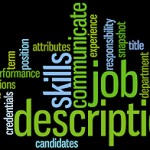 Most job postings will list some qualifications for the job that’s being offered. Usually that will include some amount of experience in that type of work. Many jobs require that you have done the same or similar work elsewhere and that you already know the job, the tools, the technology, and the information necessary to get the job done right away and with little or no training. Some companies only require someone who knows something about the work, has related or transferable skills, some useful knowledge and has shown a good aptitude for learning plus a strong work history. All of this guides you in preparing your resume to make sure that you communicate how your experience has prepared and qualifies you to do the job for which you are applying.
Most job postings will list some qualifications for the job that’s being offered. Usually that will include some amount of experience in that type of work. Many jobs require that you have done the same or similar work elsewhere and that you already know the job, the tools, the technology, and the information necessary to get the job done right away and with little or no training. Some companies only require someone who knows something about the work, has related or transferable skills, some useful knowledge and has shown a good aptitude for learning plus a strong work history. All of this guides you in preparing your resume to make sure that you communicate how your experience has prepared and qualifies you to do the job for which you are applying.
The other qualification often mentioned in job postings is an educational background in the work or field.  That may mean that you have graduated high school or possess a college degree. An educational background may also mean that you have some relevant vocational or “on-the-job” training. You may have taken classes or training in the field for which you are applying. Think of the classes, courses, workshops,
That may mean that you have graduated high school or possess a college degree. An educational background may also mean that you have some relevant vocational or “on-the-job” training. You may have taken classes or training in the field for which you are applying. Think of the classes, courses, workshops, 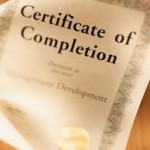 books, training, and lessons you have taken worth mentioning to impress the perspective employer with what you know. It will be especially important to mention any certificates you have earned, any licenses, or any specific tools or technologies that you have trained on that has prepared you or qualifies you to do the job.
books, training, and lessons you have taken worth mentioning to impress the perspective employer with what you know. It will be especially important to mention any certificates you have earned, any licenses, or any specific tools or technologies that you have trained on that has prepared you or qualifies you to do the job.
Key Words
While preparing to write your resume, list the words that are used in describing the qualifications listed for the job you want. Use those very words as best as you can in describing your own experience. These will likely be the “key words” that the initial screener will look for in determining which resumes get a closer look. The better your resume can match your experience, your education, and your other qualifying factors with the key words that are listed as job qualifications, the more closely your resume will be considered.
the job you want. Use those very words as best as you can in describing your own experience. These will likely be the “key words” that the initial screener will look for in determining which resumes get a closer look. The better your resume can match your experience, your education, and your other qualifying factors with the key words that are listed as job qualifications, the more closely your resume will be considered.
The Other Important Qualifications
There are other qualifying factors that may or may not be included in a job posting. There are several qualities that any employer is looking for in a good candidate. Qualities such as reliability, a proven work history, the ability to work with others, and your overall character are important to demonstrate on your resume. Even if these are not listed as a job requirement, you want to make sure your resume says there is a lot about you qualifying you as a potential employee. A strong showing of these other qualifying factors will make you appear as an excellent applicant.
your resume. Even if these are not listed as a job requirement, you want to make sure your resume says there is a lot about you qualifying you as a potential employee. A strong showing of these other qualifying factors will make you appear as an excellent applicant.
Proven Success At Work
An employer wants to know that you are a great employee and that you have had success on your past jobs. Success will look like accomplishments and recognition you have achieved along the way. Accomplishments may include promotions you’ve received, levels of responsibilities you have been given, special projects or performance goals for which you’ve been recognized. You will want to make sure you mention these accomplishments in ways that anyone reading your resume would be impressed. You may also want to mention any “outstanding” or “excellent” evaluations you may have received while on a job. You want to communicate that in the past, your work has been so good that others recognized you. This would qualify you as the kind of person that any company would want to consider hiring.
Adaptability And The Willingness To Get Along With Others
 Most jobs will require you to work as part of a team or at least with other people. Most jobs also require that each employee is willing to do what’s asked of them and that you are adaptable and flexible. This may include the kind of work you may be asked to do as well as the hours you may be asked to work. They may want you to be willing to learn or be trained in new areas. They may want you to be able to travel or even to relocate. You want to use your resume to make it clear what you are willing and able to do in terms of getting along with all kinds of people as well as your willingness to do what the company wants from an employee they will want to hire.
Most jobs will require you to work as part of a team or at least with other people. Most jobs also require that each employee is willing to do what’s asked of them and that you are adaptable and flexible. This may include the kind of work you may be asked to do as well as the hours you may be asked to work. They may want you to be willing to learn or be trained in new areas. They may want you to be able to travel or even to relocate. You want to use your resume to make it clear what you are willing and able to do in terms of getting along with all kinds of people as well as your willingness to do what the company wants from an employee they will want to hire.
A Great Character
Job postings will generally not ask that a candidate be a great person and have a strong character, but you can assume that any employer wants employees who are dependable. You may know that you are a good employee and that you’re honest and can be trusted, but the future employer won’t know unless you tell 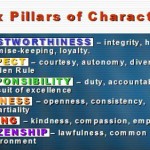 them. Employers want to know that you will show up and that your attendance and punctuality have been shown to be outstanding. They want to know that you are mature in your approach to work, that you have a strong work ethic. This means that you value your work, you respect the company, and that you are reliable, dependable and responsible when it comes to work. Be sure, in writing your resume, that you impress upon the future employer that you bring a strong character to your job. Think of the four or five things that describe your strengths of character that you bring to a job. This is what you want the employer to know about you; make sure they are mentioned in your resume.
them. Employers want to know that you will show up and that your attendance and punctuality have been shown to be outstanding. They want to know that you are mature in your approach to work, that you have a strong work ethic. This means that you value your work, you respect the company, and that you are reliable, dependable and responsible when it comes to work. Be sure, in writing your resume, that you impress upon the future employer that you bring a strong character to your job. Think of the four or five things that describe your strengths of character that you bring to a job. This is what you want the employer to know about you; make sure they are mentioned in your resume.
Your Intentions
Employers want to know that you will stay on the job and that you and the job are a good fit for each other. They want to be sure that the time and cost of training and developing you will be a good investment. It will be wise to mention both in your resume and your cover letter how this position fits for you, your background and interest in this kind of work and that your plans are to have, hold on to and succeed on this job.
Conclusion
Providing a resume that gives the employer an impression that you are right for the job will generally require you to customize every resume you submit. Resume writing is an ongoing process. Rather than having one resume to hand around to all employers you are interested in working for, think of preparing a customized resume for each and every job to which you apply. Always keep a copy of every resume you craft. You will get better with every attempt and you will have a lot of parts to piece together for every opportunity you pursue. Good luck and make yourself look like you were made for that job! Δ

by cjxpadmin | Aug 1, 2012 | August 2012 Magazine, This Issue's FEATURE
Am I Too Old To Change Careers?
You said you want to change your career at this stage of the game? Well, let me tell you that you are never too old.
Today, most of us are finding ourselves having to work much longer than we ever imagined. The days of an early retirement have been thrown out the window, so to  speak. However, working in our later years provides an opportunity to re-invent ourselves, to re-discover our hidden talents, and to pursue new ventures. This time in our lives gives us the chance to pursue the dreams that were left untapped, those things that we really wanted to do, but couldn’t because you all of a sudden find yourself with a family and obligations. Now, we are much wiser, have a lot of experience, and have gained skills that can be utilized by an employer or by yourself to start your own business. We should, after all, be challenging ourselves.
speak. However, working in our later years provides an opportunity to re-invent ourselves, to re-discover our hidden talents, and to pursue new ventures. This time in our lives gives us the chance to pursue the dreams that were left untapped, those things that we really wanted to do, but couldn’t because you all of a sudden find yourself with a family and obligations. Now, we are much wiser, have a lot of experience, and have gained skills that can be utilized by an employer or by yourself to start your own business. We should, after all, be challenging ourselves.
According to the Kingston Business School, older entrepreneurs are more likely to be successful than their younger counterparts. Why? Because the older we get, we become more confident about our own self-worth and are more aware of our strengths and weaknesses. This is a major advantage over a young person fresh out of college who is pursuing their first career. Working for yourself allows you to become dependent on yourself versus solely relying on others to give you a job.
Even if you aren’t interested in starting your own business, use this time in your life to re-assess your career and identify the areas that you truly enjoyed. Evaluate your life and job experiences and find the direction you want your career to take.
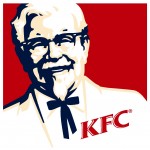 The Colonel Sanders Story has been told so many times. It’s a well known story. Colonel Sanders was 65 years old when he began franchising his infamous chicken. Prior to that, the Colonel was a gas station owner where he fried chicken for weary travelers. This story is often repeated to show that it’s never too late and one is never too old to come up with career changing ideas. However, things were different in the 1930’s. When Colonel Sanders starting serving fried chicken at a Kentucky gas station 80 years ago, he probably didn’t have as many health department hurdles to overcome as that same gas station would today. How do you know what you want to do?
The Colonel Sanders Story has been told so many times. It’s a well known story. Colonel Sanders was 65 years old when he began franchising his infamous chicken. Prior to that, the Colonel was a gas station owner where he fried chicken for weary travelers. This story is often repeated to show that it’s never too late and one is never too old to come up with career changing ideas. However, things were different in the 1930’s. When Colonel Sanders starting serving fried chicken at a Kentucky gas station 80 years ago, he probably didn’t have as many health department hurdles to overcome as that same gas station would today. How do you know what you want to do?
CareerPath.com offers online resources that determines the same answers for free. If someone wants to change careers but is having trouble deciding on a new career path, these online resources can really help. Also, the website will even suggest actual jobs worth applying for.
Always remember that there are ways to transfer the skills you have gained so far into your next career. This is your opportunity to establish your real passions, interests,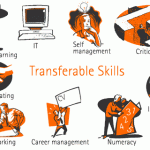 strengths and goals into your next career. However, do not forget what you have achieved or accomplished so far. None of it is irrelevant. You are simply building and growing from what you have done, even if you are taking a slightly different direction now. There is a connection there; — you just need to find it.
strengths and goals into your next career. However, do not forget what you have achieved or accomplished so far. None of it is irrelevant. You are simply building and growing from what you have done, even if you are taking a slightly different direction now. There is a connection there; — you just need to find it.
No one ever stated that we were only allowed one career path. It’s never too late to make a change. Start now. Don’t focus on your age but rather on the skills and experience you are able to offer to others. Empower yourself with this knowledge and pursue your new career path.
Choose a new you! △
“When you’re finished changing, you’re finished.”
~Benjamin Franklin

by cjxpadmin | Aug 1, 2012 | August 2012 Magazine
PREPARING FOR THE INTERVIEW
It’s a known fact that employers hire people they like, people who they can relate to or who they seem are like them somehow. Because of this, first and foremost, be likable and create a good first impression on your interview. P E O P L E get hired — experience alone does not!
The following list can help you prepare for your interview. Pay close attention and give your best interview.
 Place and time of interview: make sure you know it! Try to be there early, about 10-15 minutes early. Next, know your interviewer’s full name (the correct pronunciation as well) and his or her title.
Place and time of interview: make sure you know it! Try to be there early, about 10-15 minutes early. Next, know your interviewer’s full name (the correct pronunciation as well) and his or her title.
 Research the company. Learn everything you can about the company you are trying to get into. Learn its principal line of business, locations and yes, even annual sales revenue.
Research the company. Learn everything you can about the company you are trying to get into. Learn its principal line of business, locations and yes, even annual sales revenue.
 Envision why the hiring manager or the human resource person is interested in your qualifications.
Envision why the hiring manager or the human resource person is interested in your qualifications.
 Plan on how this opportunity could impact your immediate situation as well as your long-term career development. What can it do for your family?
Plan on how this opportunity could impact your immediate situation as well as your long-term career development. What can it do for your family?
 Always remember that an interview is a “two-way street.” Know what questions to ask. Insightful questions help both you and the interviewer to see if your relationship will be mutually rewarding.
Always remember that an interview is a “two-way street.” Know what questions to ask. Insightful questions help both you and the interviewer to see if your relationship will be mutually rewarding.
 Realize that the better you understand the opportunity at hand, the more you will be able to communicate your interest in the position. It will also help you ask better questions with regard to the job.
Realize that the better you understand the opportunity at hand, the more you will be able to communicate your interest in the position. It will also help you ask better questions with regard to the job.
 Enthusiastic smile and firm handshake are two things with which to greet your interviewer. Always wear proper attire and always, always put your best foot forward!
Enthusiastic smile and firm handshake are two things with which to greet your interviewer. Always wear proper attire and always, always put your best foot forward!
CHART OF DO’S AND DON’TS
| SOME DO’S |
SOME DON’TS |
| 1. DO plan to arrive on time or even a few minutes early. |
- DON’T arrive late for a job interview. Late arrivals are never excusable.
|
| 2. DO fill out your application neatly and completely. |
2. DON’T leave any blank spaces and DON’T rely on your resume to do the selling for you. |
| 3. DO greet the interviewer by his/her name using the correct pronunciation of their name. |
3. DON’T mispronounce his/her name. If you are unsure of it, ask the employer to repeat it. |
| 4. DO give the appearance of energy as you walk into the interviewing area. |
4. DON’T stroll into the room lazily. Smile! Firm Handshake! Be genuinely glad to be there. |
| 5. DO wait until you are offered a chair before sitting. |
5. DON’T just sit down before the interviewer. Sit up straight, be alert and look interested. |
| 6. DO be a good listener as well as a good communicator. |
6. DON’T appear bored and disinterested. Pay attention when spoken to and ask questions. |
| 7. DO look a prospective employer in the eye at all times. |
7. DON’T look away during a conversation. Maintaining eye contact shows confidence. |
| 8. DO follow the interviewer’s leads. |
8. DON’T go off on your own tangent. |
| 9. DO make sure that your good points come across to the interviewer in a factual, sincere manner. |
9. DON’T come across as egotistical, but do stress your experience, skills, abilities and achievements. |
| 10. DO always conduct yourself as if you are determined to get the job you are discussing. |
10. DON’T underestimate yourself. Never close the door on opportunity. |
| 11. DO show enthusiasm. |
11. DON’T appear blasé, nonchalant or bored. |
| 12. DO bring along at least 2-3 copies of your resume. |
12. DON’T forget to bring your resume in a neat and presentable manner. |
| 13. DO politely refuse an offer of a cigarette. |
13. DON’T smoke, even if the interviewer does and by no means, DO NOT chew gum! |
| 14. DO explain, whenever possible, any questions asked of you. |
14. DON’T respond with a simple yes or no. Give a good answer without going overboard. |
| 15. DO tell the truth. |
15. DON’T lie. Be truthful and frank. |
| 16. DO be considerate of past or present employers. |
16. DON’T make derogatory remarks of past employers. Not a good idea! |
| 17. DO answer questions politely and completely. |
17. DON’T over-answer. Stay away from politics or controversial issues. |
| 18. DO keep questions about salary and vacations to yourself. |
18. DON’T inquire about salary, vacation, bonuses, etc. on the initial interview. |
This next chart is just a brief reminder of Dressing For Success!
| Women |
Men |
| Conservative dress or suit |
If wearing suit, choose navy, gray or charcoal. |
| Avoid open-toe or sling back shoes |
Black leather shoes, polished please! |
| Conservative jewelry and perfume |
Minimal jewelry and minimal cologne |
| Hair neatly combed and not hanging in face |
Conservative haircut |
Now, it is time to check yourself and give yourself the once over right before your interview.
INTERVIEWING CHECKLIST
| Question |
✔ |
| 1. How is my physical appearance? |
✔ |
| 2. How self-assured and confident do I seem? |
✔ |
| 3. Can I communicate effectively during my interview? |
✔ |
| 4. Can I represent a return on my employer’s total investment in my pay and benefits if I am hired? |
✔ |
| 5. What are some specific examples of my achievements at work? |
✔ |
| 6. How much knowledge of the industry do I have? |
✔ |
| 7. How much do I know about my potential employer’s company? |
✔ |
| 8. Can I demonstrate with concrete examples my maturity and readiness to take on this responsibility? |
✔ |
| 9. Do I have the desire and enthusiasm to learn and grow with this company? |
✔ |
| 10. Am I exhibiting a positive attitude toward management and co-workers? |
✔ |
| 11. Am I demonstrating enough commitment and involvement in doing more than the job requires? |
✔ |
| 12. Do I understand the technical language and practices of the industry? |
✔ |
I hope these tips help you in the preparation of your interview.
Check next month and we will discuss the actual interview process itself and things to remember. Also watch for tips on the particular closing of the interview. △

by cjxpadmin | Aug 1, 2012 | August 2012 Magazine, Job Readiness
Culture at Work
Culture is at work every day and while most people think of culture as a way to distinguish their membership to an ethnic group, they seldom think of it as having an impact at their job or their interviewing process. When you apply to a job, you are automatically giving the impression that you think you would be a good fit within the company. Most  people only look at the salary and benefits being offered and never stop to think how well they would conform to the potential organization. Questions that you should ask yourself when applying for a job is, “How does the organization treat their employees or how are the employees motivated?” Organizational culture is a system of shared meaning held by members that make it unique from other organizations. In order for you to be successful at a job interview, you need to do your research and find out what kind of culture the company enforces so that you can answer interview questions in a certain way, the correct way. Job satisfaction is directly linked to how well you fit in at your work.
people only look at the salary and benefits being offered and never stop to think how well they would conform to the potential organization. Questions that you should ask yourself when applying for a job is, “How does the organization treat their employees or how are the employees motivated?” Organizational culture is a system of shared meaning held by members that make it unique from other organizations. In order for you to be successful at a job interview, you need to do your research and find out what kind of culture the company enforces so that you can answer interview questions in a certain way, the correct way. Job satisfaction is directly linked to how well you fit in at your work.
Seven characteristics that define culture at an organization are:
* innovation and risk taking
* attention to detail
* outcome orientation
* team orientation,
* aggressiveness, and
* stability.
Innovation and Risk Taking is the degree to which employees are encouraged to be innovative and to take risks. If you like to take risks at your job or you are very innovative, then, you must find out if the job you are applying to encourages their employees to function in that particular manner.
Attention to Detail is the degree to which employees are expected to exhibit precision, analysis, and to details. If you are a person who likes doing intense research or you love to analyze the logistics and details, then, an organization that motivates their employees to pay attention to detail would be a good fit for you.
Outcome Orientation is the degree to which management focuses on results or outcomes rather than on the processes used to achieve those outcomes. People who pay attention to the big picture or the end result of a project would do well in a company that has strong outcome orientation. People orientation is the degree to which management focuses on your ability to get along with others in the company and with the public. Organizations like Disney and Public Relation companies are known to value this particular characteristic.
 Team Orientation is the degree to which work activities are organized around teams, rather than individuals. This
Team Orientation is the degree to which work activities are organized around teams, rather than individuals. This
characteristic is where most people fall short because a lot of people are hesitant about working in groups.
Aggressiveness is the degree in which people are motivated to be aggressive and competitive, rather than easy going. People who are not competitive would probably have low job satisfaction versus people who thrive on competition.
 Stability is the degree to which organizational activities emphasize maintaining the status quo and contrast to growth. Companies that are high in stability are less open to change and different innovative ideas so beware if you are the type of person who likes to mix things up a little bit.
Stability is the degree to which organizational activities emphasize maintaining the status quo and contrast to growth. Companies that are high in stability are less open to change and different innovative ideas so beware if you are the type of person who likes to mix things up a little bit.
Applying to different companies should not be a random process because your happiness and satisfaction depend on how well you pick the companies you want to apply to. Some companies are strong in more than one area listed above and some are only strong in one of the characteristics listed so be aware. Your job is to decide what you value and would like to deal with on a daily basis.
 If you like companies that value risk taking and innovation or stability or perhaps you prefer team orientation, it is up to you to determine how you would like to function at your work and to find a company that allows and encourages you to do so. Read daily news about the companies you are applying to because that could give you some insight as to how they appear to the public eye.
If you like companies that value risk taking and innovation or stability or perhaps you prefer team orientation, it is up to you to determine how you would like to function at your work and to find a company that allows and encourages you to do so. Read daily news about the companies you are applying to because that could give you some insight as to how they appear to the public eye.
Another way to find out about the company is to use networking. Never underestimate networking because talking to people who work for potential companies can give you insight that is not shown to the general public. Some companies that have strong organizational cultures are Google, Hewlett Packard, and Dell. The bigger the company, the easier it will be to research what kind of company they are. Remember do your research, know what you want, and know your potential company and employer. △
























